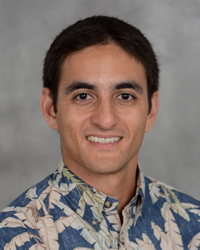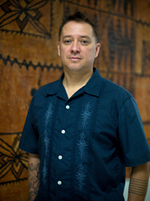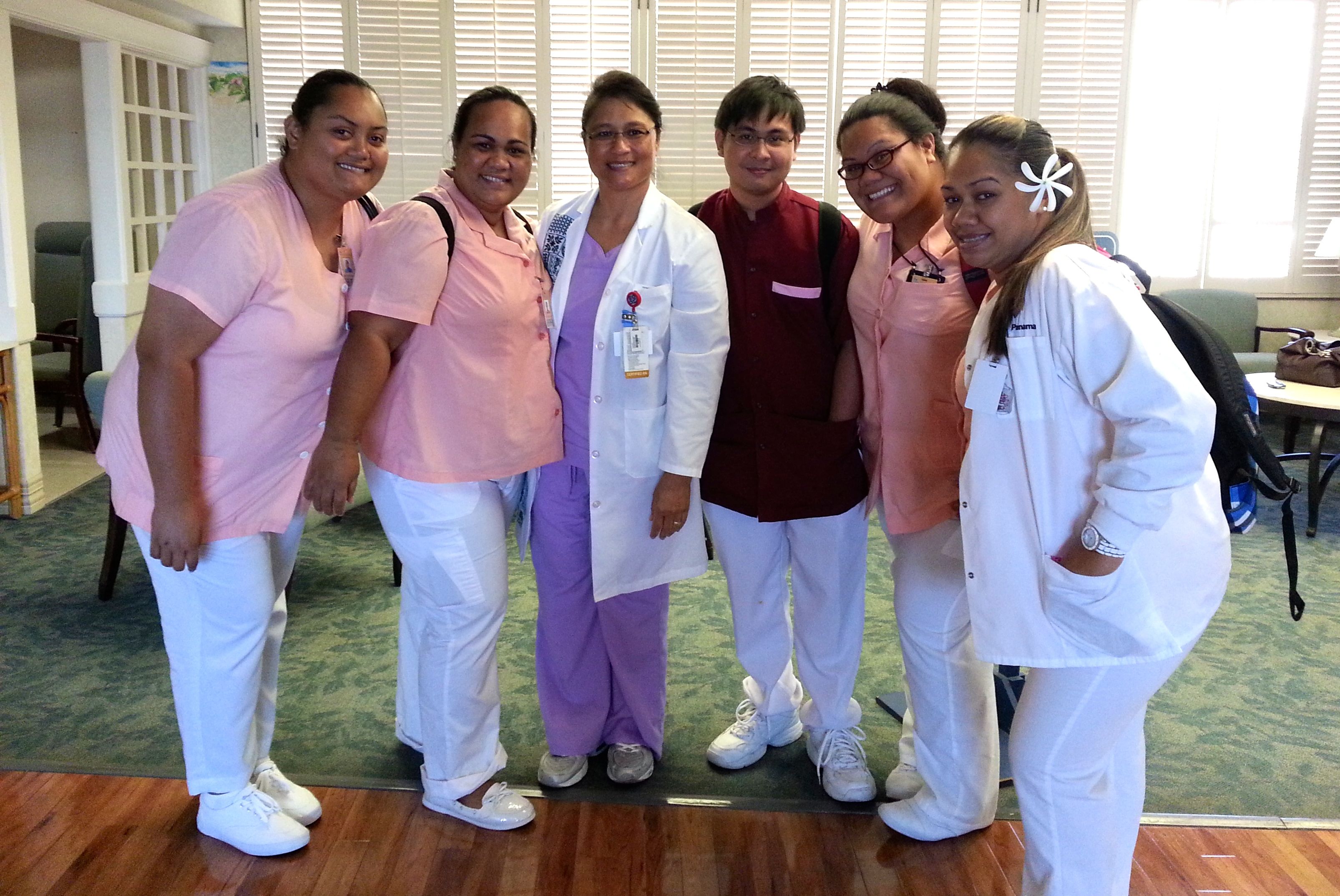Summer 2014 Nursing Highlights
Demonstrating Excellence, Two Faculty Pass APHN-BC Exam
This summer, Gary Glauberman, MS, RN, APHN-BC, and Morgan Torris, MS, RN, APHN-BC, FAWM, passed the Advanced Public Health Nursing board certification (APHN-BC) exam administered by the American Nurses Credentialing Center. The APHN-BC exam is for nurses who are committed to developing and expanding the field of public health nursing. The APHN-BC exam is a 175 multiple choice computer-based test covering theories and concepts of human development, assessment of public and community health, leadership, and program evaluation topics. Starting in 2014, the ANCC grants APHN board certification through a portfolio method, and no longer requires applicants to take an exam.
 As an instructor of Community, Public & Global Health Nursing, Glauberman’s APHN-BC certification has helped him to better facilitate student learning and exploration of public health nursing. “For me, receiving the APHN-BC certification felt like a real milestone in my nursing career. Passing the exam felt like a huge sense of accomplishment because it validated my personal level of public health nursing knowledge, and also the caliber of education I received as a graduate of the UHM Nursing APHN master’s program,” said Glauberman.
As an instructor of Community, Public & Global Health Nursing, Glauberman’s APHN-BC certification has helped him to better facilitate student learning and exploration of public health nursing. “For me, receiving the APHN-BC certification felt like a real milestone in my nursing career. Passing the exam felt like a huge sense of accomplishment because it validated my personal level of public health nursing knowledge, and also the caliber of education I received as a graduate of the UHM Nursing APHN master’s program,” said Glauberman.
 “Passing the APHN-BC exam feels like the real completion of my master’s work,” said Torris. Currently, he teaches 5th semester undergraduate nursing students and oversees the Community Health Clinical at Papakolea. He also teaches the Role of APHNs in Disasters for graduate students. For 5th semester students, his course is an opportunity to learn the importance of viewing health of entire populations. It is a pivotal semester, as students are given more independence and develop their professional skills before graduation. For Torris, passing the APHN-BC communicates to students his commitment to the specialty and he uses his own achievements as an example to encourages students to strive for high standards.
“Passing the APHN-BC exam feels like the real completion of my master’s work,” said Torris. Currently, he teaches 5th semester undergraduate nursing students and oversees the Community Health Clinical at Papakolea. He also teaches the Role of APHNs in Disasters for graduate students. For 5th semester students, his course is an opportunity to learn the importance of viewing health of entire populations. It is a pivotal semester, as students are given more independence and develop their professional skills before graduation. For Torris, passing the APHN-BC communicates to students his commitment to the specialty and he uses his own achievements as an example to encourages students to strive for high standards.
For more information about the APHN-BC credential, visit http://www.nursecredentialing.org/AdvancedPublicHealthNurse-Portfolio.
Betty Fletcher, Honor Student Summer Public Health Scholars Program at Columbia
UHM Nursing Honor Students Betty Fletcher was accepted to participate in the highly selective Summer Public Health Scholars Program at Columbia University. The didactic portion included three courses: Introduction to Public Health, Introduction to Epidemiology, and a course on Health Disparities. For her internship experience, Fletcher worked with UPROSE, an environmental justice organization on a project called the Climate Justice Community Resilience Center. This Center trains people in local communities to be “block captains” who provide leadership in their neighborhoods in the event of a disaster.
At the Center, Fletcher designed surveys to assess the health needs of each particular neighborhood and brainstormed ways to reach out to individual communities. Her final project for the program was titled “Disaster Preparedness, Response, and Recovery in Communities of Low Socio-Economic Status.” Fletcher presented her paper and findings to program faculty, mentors and peers. After completing the program, Fletcher said, “as a nursing student, participating in this program helped me to understand the external factors that contribute to the health problems I see in patients that I work with in my clinical rotations. It also gave me a lot of good ideas about how to make the environment we live in healthier for everyone.”
For more information about the UH Manoa Nursing honors program, contact Dr. Estelle Codier at codier@hawaii.edu.
Albright Receives $1 Million Grant to Educate Students about Organ Donation
 UHM Nursing research professor Cheryl L. Albright, PhD, MPH, recently received a Health Resources and Services Administration (HRSA) grant for $1 million dollars to conduct a three year research study. The title of the project is: “Using an interactive website, social media, and gamification to engage/reframe deceased organ donation for Asian/Pacific Islander college students” (aka: The iDecide Project).
UHM Nursing research professor Cheryl L. Albright, PhD, MPH, recently received a Health Resources and Services Administration (HRSA) grant for $1 million dollars to conduct a three year research study. The title of the project is: “Using an interactive website, social media, and gamification to engage/reframe deceased organ donation for Asian/Pacific Islander college students” (aka: The iDecide Project).
The iDecide Project will educate undergraduate college students about organ donation following death (“deceased donor”) and their decision to become a “designated organ donor” on their adult driver’s license. Over 56% of the 120,000 critically ill Americans waiting on transplant waiting lists are ethnic minorities. The proportion of ethnic minorities, including Asian, Native Hawaiian, and Pacific Islanders (ANHPI), on waiting lists exceeds their representation in the general population. However, few ANHPI adults are designated organ donors on their driver’s licenses or are registered via an online state-specific donor registry.
Individuals are typically asked about becoming a designated organ donor when they renew their driver’s license; but, most never think about organ donation outside of the short-lived DMV transaction. Of those who choose to be a donor on their license, most will remain a donor for their entire life. Intervening with drivers before the date of their license renewal can be difficult to arrange; however, opportunities arise when college students turn 21 and want to renew their license in order to remove formatting and colors signifying that the license belongs to an underage minor.
This project will introduce, sequentially, an online intervention at three universities: UH Manoa, UH Hilo, and Hawaii Pacific University. The goals are to increase designated organ donor rates in college students and encourage peer discussions / advocacy about organ donation. Taking advantage of college students’ frequent use of online technology, including social networking sites like Facebook and social media sites like YouTube and Twitter, the iDecide Project will create an online intervention that leverages this technology to engage and educate college students about a range of topics related to organ donation and their decision to become a designated organ donor on their adult driver’s license. It will also provide culturally sensitive messages tailored to their interest in or wariness of becoming a designated organ donor and attempt to reframe students’ negative attitudes about becoming a designated organ donor.
For more information about iDecide contact Cheryl Albright at cherylal@hawaii.edu.
American Samoa Students Receive Intensive Training at UHM Nursing and The Queen’s Medical Center
This summer, UH Manoa Nursing hosted 13 senior nursing students from American Samoa for a four-week acute care nursing educational review program. Visiting students had the opportunity to develop their acute care nursing skills through a variety of endeavors that included special training at UH Manoa Nursing’s Translational Health Science Simulation Center (THSSC), observation of nursing care at The Queen’s Medical Center (QMC), and participation in NCLEX review sessions.
 This opportunity was coordinated by Dr. Kristine Qureshi, director of the UHM Nursing Global Health Program and Lele Ah Mu, the director of the Nursing Program at the American Samoa Community College. The trainings were delivered through the joint efforts of Dr. Lorrie Wong, director of the UH THSSC and her staff; UHM Nursing faculty members Nafanua Braginsky and Penny Morrison; and The Queen’s Medical Center’s unit managers and administrators Mimi Harris, Ginger Hart, Cindy Kamikawa, Cindy Kitkowski, and Michael Morimoto.
This opportunity was coordinated by Dr. Kristine Qureshi, director of the UHM Nursing Global Health Program and Lele Ah Mu, the director of the Nursing Program at the American Samoa Community College. The trainings were delivered through the joint efforts of Dr. Lorrie Wong, director of the UH THSSC and her staff; UHM Nursing faculty members Nafanua Braginsky and Penny Morrison; and The Queen’s Medical Center’s unit managers and administrators Mimi Harris, Ginger Hart, Cindy Kamikawa, Cindy Kitkowski, and Michael Morimoto.
At the beginning of the program, UH THSSC provided a one-week immersive, simulation-based program developed to specifically meet the educational needs of the visiting students. The program focused on key nursing concepts including: professional role development, patient assessment, diagnostic reasoning, and clinical decision making skills required to manage acute care patients. During these sessions students sharpened their critical thinking abilities and practiced clinical decision-making through hands-on learning activities in the THSSC.
In addition, the students spent 9 days at QMC observing acute care nursing in action on medical/surgical units. They observed RN’s using advanced technology to support patient care that is effective, efficient and safe. Time was also spent at the QMC Family Treatment Center and the Kekela psychiatric units. Students participated in group activities and engaged the patients with a Samoan song and dance presentation. Finally, the students’ weekends were spent with UHM faculty member Penny Morrison, who provided the students with NCLEX review sessions. The intensive four-week educational program was rigorous and the students all worked very hard to improve their knowledge and skills related to acute care nursing.
American Samoa Community College School of Nursing director Lele Ah Mu noted, “We are grateful to UH Manoa Nursing for the ongoing support for the American Samoa Community College nursing program. The experiences at UH THSSC and the QMC will serve to strengthen capacity for nursing in American Samoa. We certainly plan to work with the UH Manoa Nursing’s Global Health Program and the UH THSSC to repeat this endeavor again the future.”
For more information about UH Manoa Nursing’s Global Health Program contact Dr. Kristine Qureshi at kqureshi@hawaii.edu. For information about the UH Translational Health Science Simulation Center, contact Dr. Lorrie Wong at lorriew@hawaii.edu.
